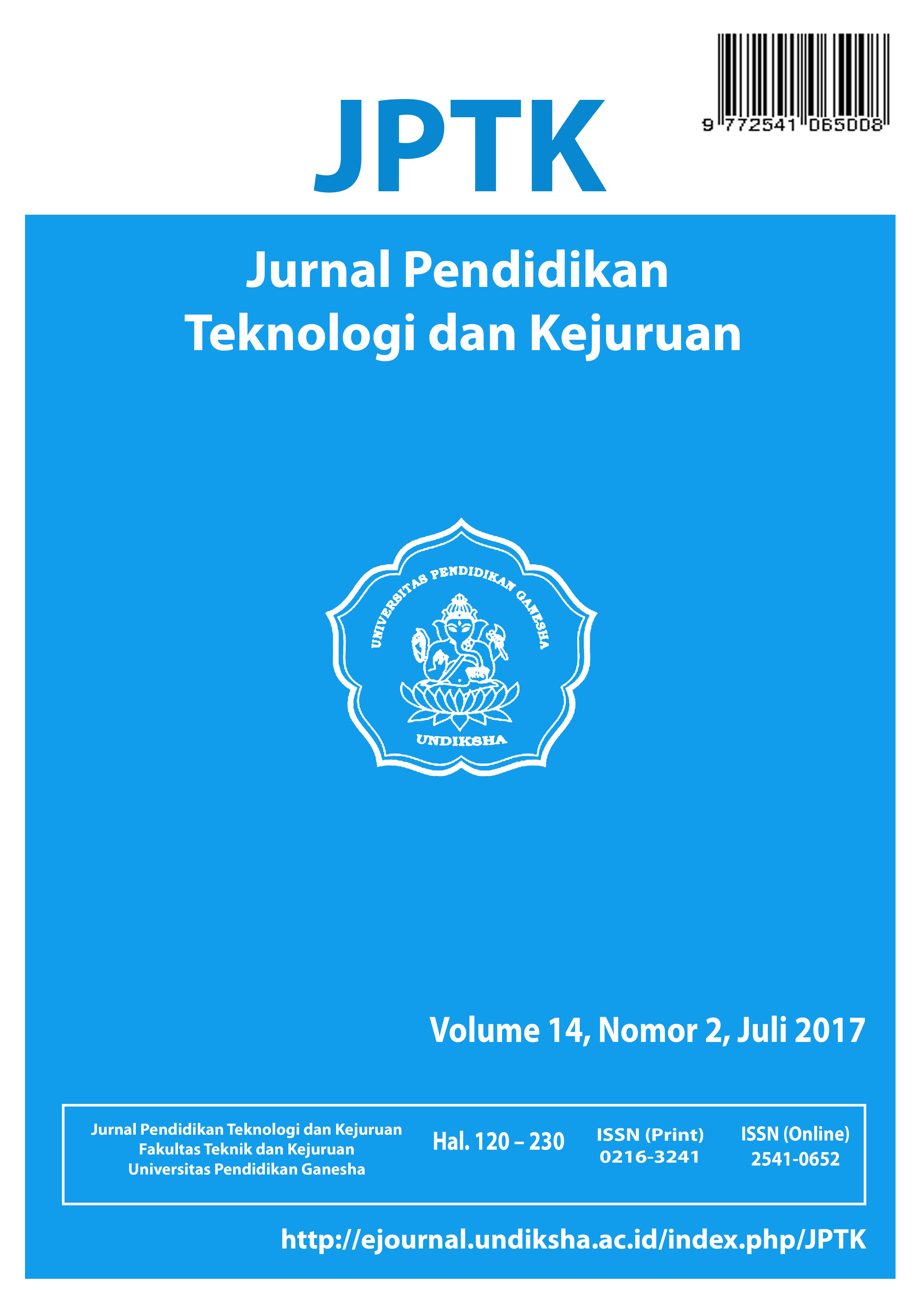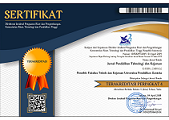PENGEMBANGAN E-MODUL MATA KULIAH STRATEGI PEMBELAJARAN
DOI:
https://doi.org/10.23887/jptk-undiksha.v14i2.11830Abstract
This study aimed to develop and produce a product of e-module learning media in the subject of CAI-based Learning Strategy with project based learning, in order to improve the mastery of student concepts and graduate competencies, especially in the mastery of the concept of Pedagogic as a prospective teacher. To produce the expected product, the method to be used in the achievement of the goal is the development method using the ADDIE model consisting of five stages: 1) analysis, 2) design, 3) development, 4) implementation and 5) evaluation. In the analysis phase, analyzes are related to system requirements and instructional goals learning strategy subject to syllabus / SAP. At the design stage is done systematic design of learning strategy module with project based learning as well as done stages of system design, database, and interface. Development stage is a continuation of what has been designed, ie compiling the module content in accordance with the syllabus / SAP with project based learning and create a system based on CAI, in this case LMS (Learning Management System) used is Moodle. Implementation stage is to insert the module content into Moodle, in other words, Moodle as a container of learning strategy module, so as to produce e-Module.
Keywords: e-Modul, Moodle, CAI, Project Based learning
Downloads
Published
Issue
Section
License
Authors who publish with the JPTK agree to the following terms:- Authors retain copyright and grant the journal the right of first publication with the work simultaneously licensed under a Creative Commons Attribution License (CC BY-SA 4.0) that allows others to share the work with an acknowledgment of the work's authorship and initial publication in this journal
- Authors are able to enter into separate, additional contractual arrangements for the non-exclusive distribution of the journal's published version of the work (e.g., post it to an institutional repository or publish it in a book), with an acknowledgment of its initial publication in this journal.
- Authors are permitted and encouraged to post their work online (e.g., in institutional repositories or on their website) prior to and during the submission process, as it can lead to productive exchanges, as well as earlier and greater citation of published work. (See The Effect of Open Access)












